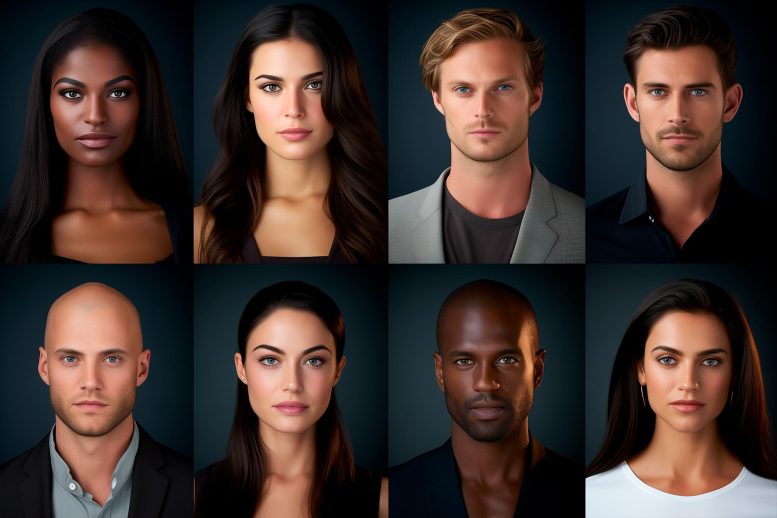From
New research study reveals that AI-generated white faces appear more sensible than genuine human faces, indicating possible dangers of racial predisposition and false information in AI innovation.
White deals with created by expert system (AI) now appear more genuine than human faces, according to brand-new research study led by professionals at The Australian National University ( ANU).
In the research study, more individuals believed AI-generated white faces were human than the faces of genuine individuals. The very same wasn’t real for pictures of individuals of color.
The factor for the disparity is that AI algorithms are trained disproportionately on white faces, Dr. Amy Dawel, the senior author of the paper, stated.
Ramifications of AI Realism
” If white AI faces are regularly viewed as more sensible, this innovation might have severe ramifications for individuals of color by eventually enhancing racial predispositions online,” Dr. Dawel stated.
” This issue is currently evident in existing AI innovations that are being utilized to produce professional-looking headshots. When utilized for individuals of color, the AI is changing their skin and eye color to those of white individuals.”
Comprehending AI ‘Hyper-Realism’
Among the concerns with AI ‘hyper-realism’ is that individuals frequently do not understand they’re being deceived, the scientists discovered.
” Concerningly, individuals who believed that the AI faces were genuine frequently were paradoxically the most positive their judgments were right,” Elizabeth Miller, research study co-author and PhD prospect at ANU, stated.
” This implies individuals who are misinterpreting AI imposters genuine individuals do not understand they are being fooled.”
The scientists were likewise able to find why AI faces are tricking individuals.
Why AI Faces Are Misleading
” It ends up that there are still physical distinctions in between AI and human faces, however individuals tend to misinterpret them. For instance, white AI deals with tend to be more in-proportion and individuals error this as an indication of humanness,” Dr. Dawel stated.
” Nevertheless, we can’t depend on these physical hints for long. AI innovation is advancing so rapidly that the distinctions in between AI and human faces will most likely vanish quickly.”
Prospective Repercussions
The scientists argue this pattern might have severe ramifications for the expansion of false information and identity theft, which action requires to be taken.
” AI innovation can’t end up being sectioned off so just tech business understand what’s going on behind the scenes. There requires to be higher openness around AI so scientists and civil society can recognize concerns before they end up being a significant issue,” Dr. Dawel stated.
Raising public awareness can likewise play a considerable function in minimizing the dangers positioned by the innovation, the scientists argue.
” Considered that human beings can no longer spot AI faces, society requires tools that can precisely recognize AI imposters,” Dr. Dawel stated.
” Informing individuals about the viewed realism of AI deals with might assist make the general public properly hesitant about the images they’re seeing online.”
The research study was released in Mental Science, a journal of the Association for Psychological Science.
Recommendation: “AI Hyperrealism: Why AI Faces Are Viewed as More Genuine Than Human Ones” by Elizabeth J. Miller, Ben A. Steward, Zak Witkower, Clare A. M. Sutherland, Eva G. Krumhuber and Amy Dawel, 12 November 2023, Mental Science
DOI: 10.1177/ 09567976231207095
